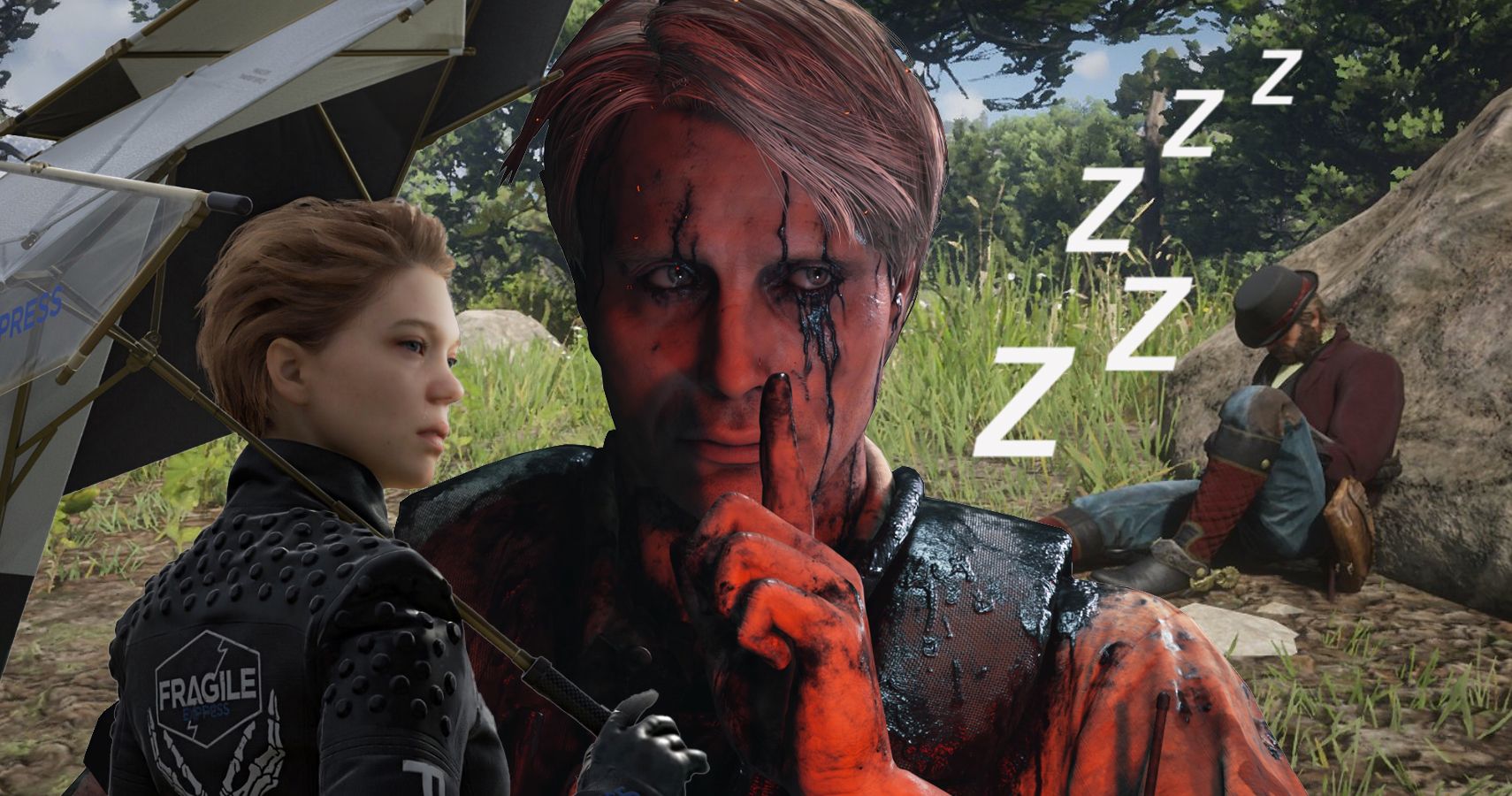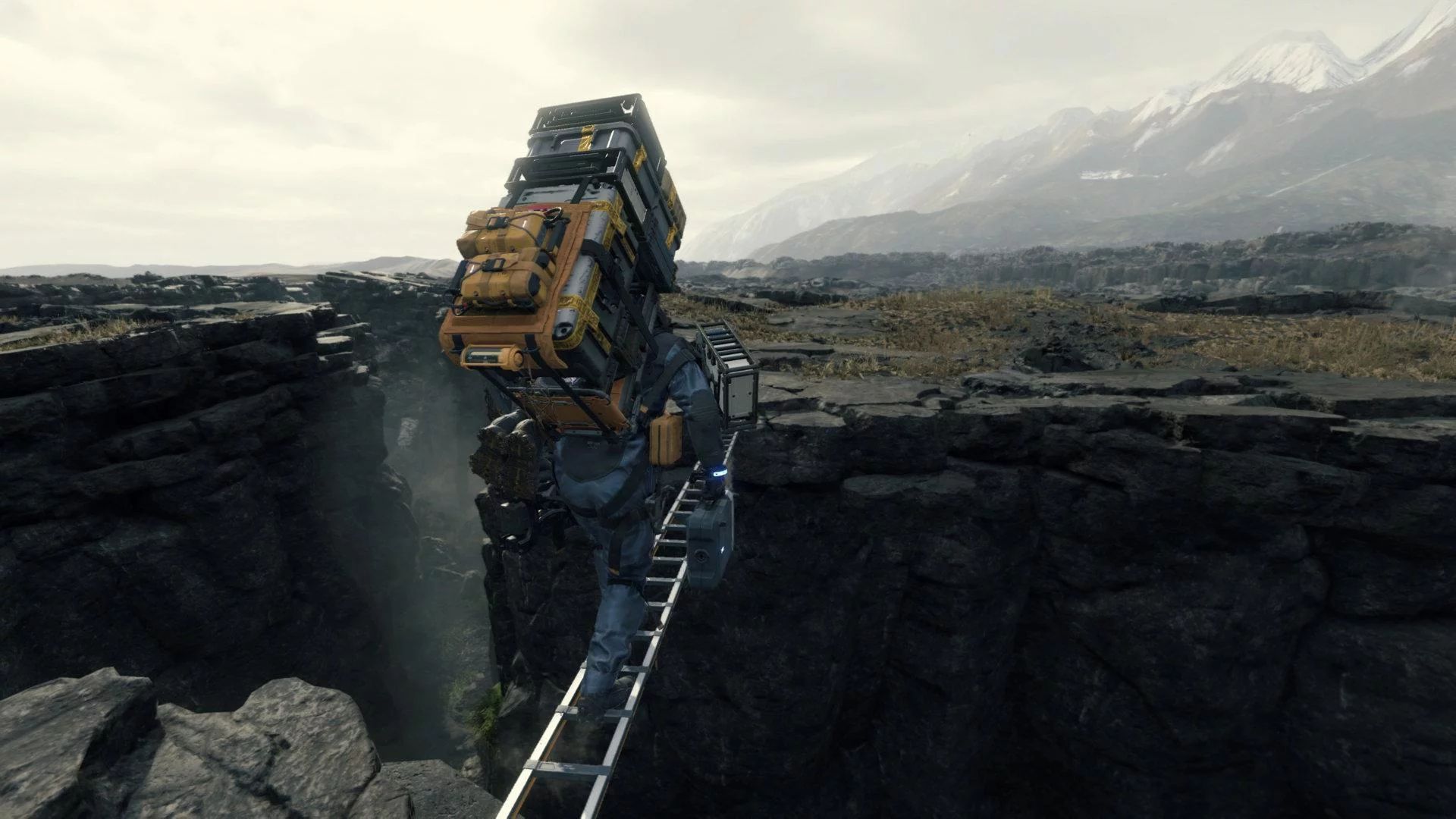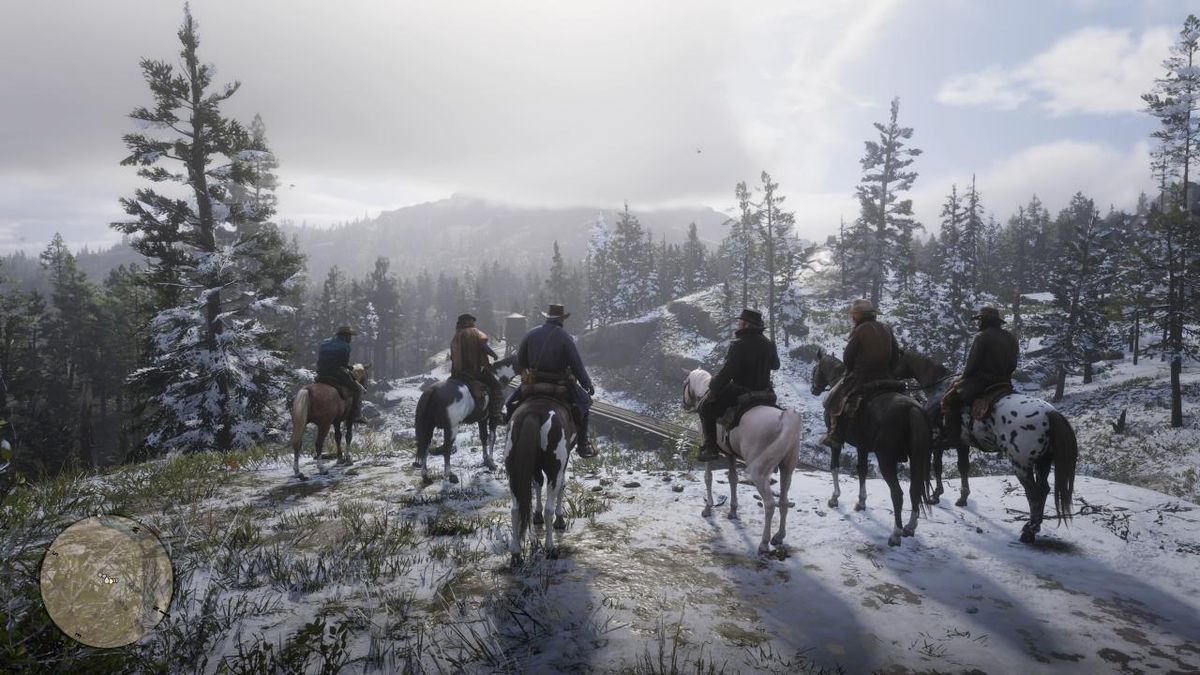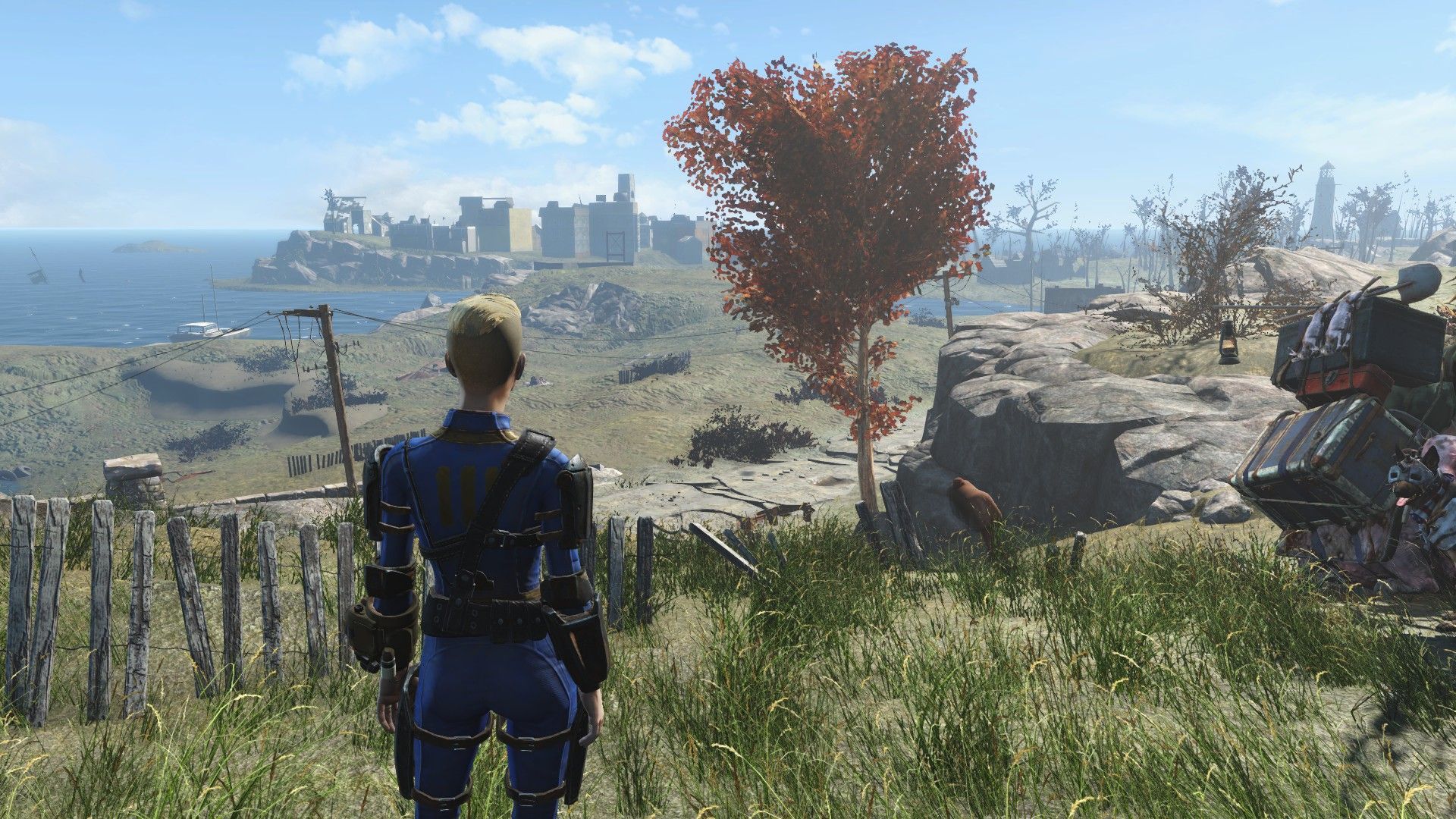Hideo Kojima’s long-awaited dystopian mail carrier simulator Death Stranding finally launched last week, and the reviews have been surprisingly negative. That’s not to say that the game doesn’t have its supporters or to imply that the game is a definite misfire for Sony, but it’s a bit strange to see a title most pegged as a certain slam-dunk receive so much flack.
The chief complaint regarding Death Stranding seems to be that, for all of its morbid beauty and innovative ideas, it relies too frequently on boring and tedious gameplay mechanics. Though proponents of the experience will argue that this isn’t the case, the very core of the Death Stranding experience seems to be… well, just walking — walking while over-encumbered, to be more specific.
While we could argue over the game’s relationship to the modern-day political climate or it’s in-depth take on the human condition until we’re blue in the face, the fact remains that there is quite a bit of tedium present in this experience, and it coincides with a recent trend in big-budget game development: boredom.
It may sound hyperbolic, but AAA releases increasingly seem to rely on scripted setpieces and predetermined scenarios to convey their stories or introduce players to their worlds, and, while it’s nice to marvel at expertly crafted environments or gawk at soon-to-be-standard RTX-enabled volumetric lighting, there’s no denying that some titles seem to be eager to relinquish players of control rather than grant them more of it.
Take Rockstar’s Red Dead Redemption 2, for example; lauded as one of the best games of the current gaming generation, it’s often held as a shining example of the medium. That said, some have complained that, compared to the developer’s proceeding games, it feels like an on-rails, hands-off experience. Sure, the world does open up after a while, and there certainly seems to be enough action to satisfy even the most bombastic Michael Bay fans, but there’s no denying that many of the main missions — the introductory ones, in particular — are slow and emphasize the story at the risk of player engagement.
Another great example of this phenomenon is Bethesda’s Fallout 4. Though a significant leap from Fallout 3 or Fallout: New Vegas in terms of visual fidelity, the game carved out a lot of what made the previous Fallout titles so memorable. Player agency played a key role in each of the series’ titles up until that point, and Fallout 4 more-or-less threw that out in favor of railroading players through a largely predetermined story.
Unlike the classic isometric games that established the franchise’s stellar reputation, Fallout 4 only offered players a handful of impactful decisions, and, regardless of the ending at which a player arrived, the overall experience felt overwhelmingly homogenized — the missions may have been slightly different, but the overarching story beats remained the same.
Contrast this with Obsidian’s recently-released The Outer Worlds. As an RPG that prioritizes player choice and allows for a great degree of variation in terms of decision making and playstyle, it feels like an outlier amid a sea of massive AAA titles that, for all their cinematography circumstances, feel flat and constricting.
“It looks like a movie” may have been high praise for games more than a decade ago, but, it seems that, in 2019, major productions are all too fond of reveling in their newfound technical capabilities than focusing on producing a legitimately entertaining experience.
Sure, diverse, consistently riveting games are released all the time on the indie scene, but, as far as well-marketed, huge releases are concerned, twisting games into glorified movies is slowly becoming the new normal. While that may not frustrate those accustomed to the safe, often unchallenging confines of annualized sports releases or multiplayer-centric first-person shooters, it's an ever-persistent enemy of an inherently interactive medium.
At the end of the day, video games are art, and it’s unfair to criticize a game’s vision or intent based on what it isn’t. Still, watching Norman Reedus plod around a devastated post-America may have been more fun were it just a movie, and the twilight era of Western fronteering may have been even better had it allowed for just a bit more freedom.
Death Stranding and Red Dead Redemption 2 certainly aren’t bad games, but interactivity is a requirement of the medium, and, if cinematics and hand-held story segments are continually prioritized, then it could eventually be a detriment to some future releases.




